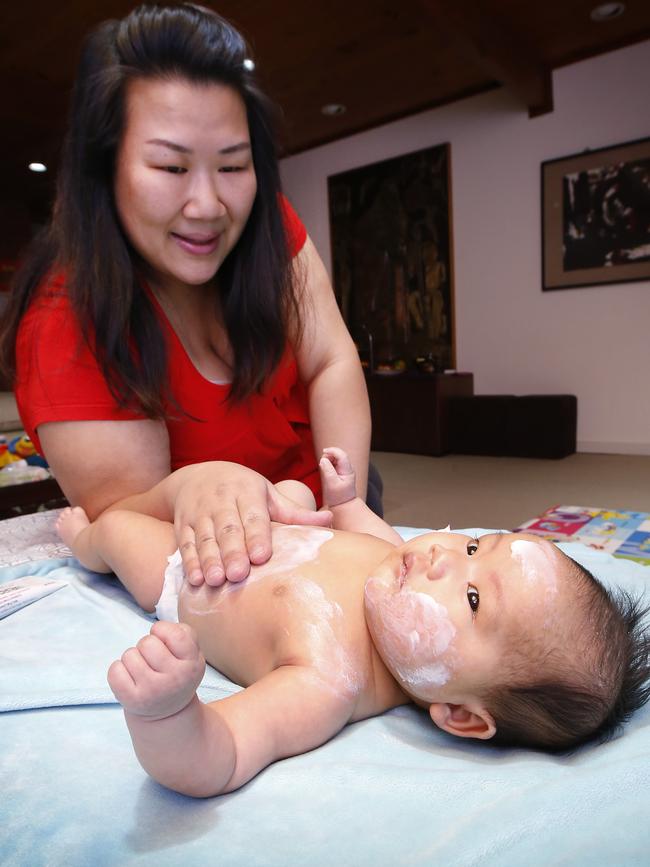Dream cream to be tested on babies in bid to prevent food allergies, eczema and asthma
The great baby draft is on, with Melbourne researchers hoping to recruit hundreds of newborns and save them from a life of food allergies, eczema and asthma with an experimental new cream.

VIC News
Don't miss out on the headlines from VIC News. Followed categories will be added to My News.
Hundreds of Victorian babies will be given the chance to see if a new skin cream can save them from a life of food allergies, eczema and asthma.
In stepping up development of a potentially lifesaving barrier cream, Melbourne researchers are launching a baby draft to recruit 760 newborns.
By applying a barrier cream over the first months of a baby’s life, the researchers believe they can block allergens passing through the skin and triggering potentially deadly lifelong conditions.

Led by the University of Melbourne and involving the Murdoch Children’s Research Institute and Melbourne hospitals, the Pebbles Study will involve babies under three weeks old whose parents or siblings suffer from eczema, asthma or food allergies.
Lead researcher Associate Professor Adrian Lowe said previous research had shown infants with the poorest skin barrier were at increased risk of developing eczema and food allergies.
“This is one of the largest studies to test if a barrier cream can prevent the development of eczema and food allergy and is based in Melbourne where there are very high rates of allergy,” Prof Lowe said.
“If this works, it may prevent children from developing eczema and food allergy, and possibly other allergic conditions, like asthma.”
One theory behind the development of allergies is known as “leaky skin”, where it is thought barrier damage allows allergens to enter an infant’s body and stimulate a response that then becomes an allergic disease.
By waterproofing the babies early in life to block allergens, the Melbourne researchers believe they can avoid long-term oversensitisation and reactions.
Earlier tests found no adverse reactions to the EpiCeram, while results of a second phase of tests in 80 babies were published in the British Journal of Dermatology with a “promising” reduction in the rate of eczema and sensitisation to food allergens.
MORE NEWS:
VATICAN RESPONDS AFTER PELL VERDICT
HUGE WAVES, STRONG WINDS TO BATTER VICTORIA
CALLS FOR SMOKE ALARMS IN EVERY BEDROOM
With her two-year-old son Sebastian allergic to gluten, dairy, soy, eggs and some nuts, Yvonne Deng was desperate for anything that could prevent daughter Penelope, eight weeks, having a similar fate. Twice a day for the first six months of her life, Penelope will have a barrier cream applied.
“Since her second week we smother her with this cream day and night,” Ms Deng said. “It is a nice massage and she seems to be liking it.”
To learn more about the trial phone 1800 875 127 or visit mspgh.unimelb.edu.au/visit/pebblesstudy


